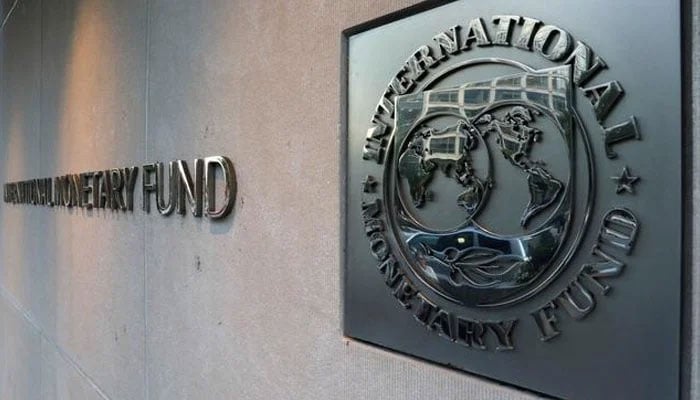IMF expresses concerns over rising inflation in Pakistan
External pressures also started to emerge in 2021, including a widening current account deficit and depreciation pressures on the exchange rate, says IMF
The International Monetary Fund (IMF) has expressed concerns over rising inflation and widening current account deficit of Pakistan.
In a statement, the IMF said that Pakistan entered the COVID-19 pandemic with strengthened buffers, following the approved EFF program. A strong economic recovery has gained hold since the summer of 2020, benefiting from the authorities’ multifaceted policy response to the unprecedented shock.
At the same time, external pressures also started to emerge in 2021, including a widening current account deficit and depreciation pressures on the exchange rate which also reinforced domestic price pressures, it added.
Lauding the recent steps taken by the government, the IMF said, “The recent policy adjustment was appropriate to address these challenges and maintain economic stability.”
The economy is set to continue recovering in FY 2022, with real GDP growth projected at 4%, while inflation is expected to pick up this year before gradually slowing down, it added.
However, Pakistan remains vulnerable to possible flare-ups of the pandemic, tighter international financial conditions, a rise in geopolitical tensions, as well as delayed implementation of structural reforms, said the IMF.
IMF approves $1bn tranche for Pakistan
It is pertinent to mention here that the IMF executive board completed the sixth review under the Extended Fund Facility (EFF) for Pakistan, allowing the authorities to draw SDR 750 million (about US$1 billion).
The IMF said that its executive board concluded the 2021 Article IV Consultation with Pakistan.
The completion of the review allows the authorities to draw the equivalent of SDR 750 million (about US$1 billion), bringing total purchases for budget support under the program to SDR 2,144 million (about US$3 billion), or 106% of the country’s quota.
Meanwhile, Finance Minister Shaukat has announced that IMF has approved the 6th tranche of their program for Pakistan.
Taking to Twitter he said, “I am pleased to announce that the IMF Board has approved the 6th tranche of their program for Pakistan.”
The EFF was approved by the board on July 3, 2019 for SDR 4,268 million (about US$6 billion at the time of approval, or 210% of quota). The program aims to support Pakistan's policies to help the economic recovery from the COVID-19 pandemic, ensure macroeconomic and debt sustainability, and advance structural reforms to lay the foundations for strong, job-rich, and long-lasting growth that benefits all Pakistanis, said the IMF.
The Executive Board also approved today the authorities' request for waivers of applicability and nonobservance of performance criteria.
‘Amendments to the central bank Act is a welcome step’
Following the Executive Board's discussion on Pakistan, Antoinette Sayeh, Deputy Managing Director and Acting Chair, said: “The Pakistani economy has continued to recover despite the challenges from the COVID-19 pandemic, but imbalances have widened and risks remain elevated. The authorities’ recent policy efforts to strengthen economic resilience are welcomed. Timely and consistent implementation of policies and reforms remain essential to lay the ground for stronger and more sustainable growth.”
She said in a statement that the authorities have taken important measures to strengthen fiscal policy and put public finances on a sounder footing. Broader reforms in tax administration and public financial and debt management are expected to further improve the fiscal framework, she added.
“The adoption of amendments to the central bank Act is a welcome step toward strengthening its independence to pursue its mandates of price and financial stability,” Sayeh added.
She maintained that the recent monetary policy tightening was necessary and continued proactive, data-driven monetary policy would help to anchor inflation.
The authorities are committed to removing the existing exchange restrictions and multiple currency practices when BOP conditions stabilize, Sayeh added.
She said, “Strong efforts to advance electricity sector reform are needed to restore the sector's financial viability and address adverse spillovers on the budget, financial sector, and real economy,”
Sayeh maintained that the authorities were focused on state-owned enterprises reform, fostering the business environment and reducing corruption and addressing the challenges posed by climate change.
-
Bitcoin crashes below $63K as regulatory pressure and market fears grow
-
Bitwise Crypto Industry innovators ETF: What investors should do in 2026?
-
Nintendo shares slide again as momentum fears grow
-
Gold, silver prices fallen sharply; What’s driving the drop?
-
Gold’s record climb: Experts question if its safety is ‘overstated’
-
Dubai unveils plans to construct street built with real gold
-
Netflix slams Paramount’s bid: 'Doesn't pass sniff test’ as Warner battle escalates
-
Ubisoft: Shares plunge amid restructuring plan and wave of games cancellations












